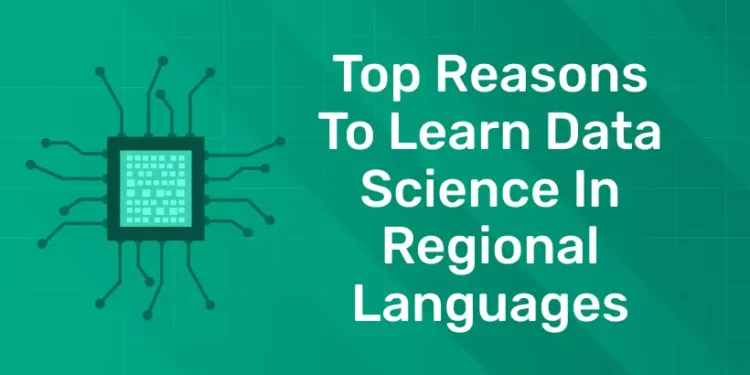Universal Accessibility:
People from different linguistic origins can learn data science by learning it in regional languages, which eliminates language barriers. Talent from all around the world will be able to take part in the data revolution because to this inclusion.
Individualised Education:
More individualised and engaging learning experience can be had by studying data science in one’s mother tongue. Also more efficient comprehension of difficult topics by learners results in a deeper comprehension and retention of information.
Cultural Significance:
Because it is more in line with their experiences and cultural background, and the learners find data science instruction in regional languages to be more relatable. Increased motivation and engagement are fostered throughout the learning process by this cultural relevance.
Strengthening of Regional Communities:
The local communities are empowered to seek jobs in technology without the added burden of learning a foreign language by providing data science courses in regional languages. Also within local tech ecosystems, this empowerment spurs innovation, job development, and economic progress.
Fill up Language Difficulties:
Here the language limitations can hold the learning process for many individuals who aspire to become data scientists. And this gap is filled by learning in regional languages, which gives students the bond and clarity to understand difficult ideas.
International Cooperation:
Since the data science is an international field, cooperation requires an excellent communication. Obtaining proficiency in regional languages facilitates communication amongst professionals in data science with varying backgrounds, it leads to worldwide collaboration and innovation.
Various Viewpoints:
In data science, diversity promotes creativity and innovation. The data science community may access a extensive scope of viewpoints and ideas by embracing the regional languages. And which can result in more robust solutions and ground-breaking findings. Promotion in Career:
Gaining proficiency in data science can lead to high job opportunities across a range of sectors. Also obtaining knowledge in regional languages guarantees that potential data scientists can succeed in their employment and compete on an even playing field.
Community Assistance:
Language sharing communities of data science expert offer priceless tools and support for education and development. By learning data science in regional languages, students may connect with these communities and take advantage of one to one advices and support.
Worldwide Effect:
People can stay connect in their local communities while having a global effect by learning data science in regional languages. Their contributions to the area are inter-regional and enhance the state of data science worldwide.
🚀 Start Coding Today! Enroll Now with Easy EMI Options. 💳✨
Equip yourself with in-demand skills to land top-tier roles in the data-driven world.
Start Learning Now with EMI Options
Conclusion:
Gaining knowledge of data science in regional languages can lead to creativity, comprehensive, and promotion. The data science community can fully utilise the brilliance of people from all over the world by embracing language difficulties, which will be enhance the research and have a beneficial social impact.












